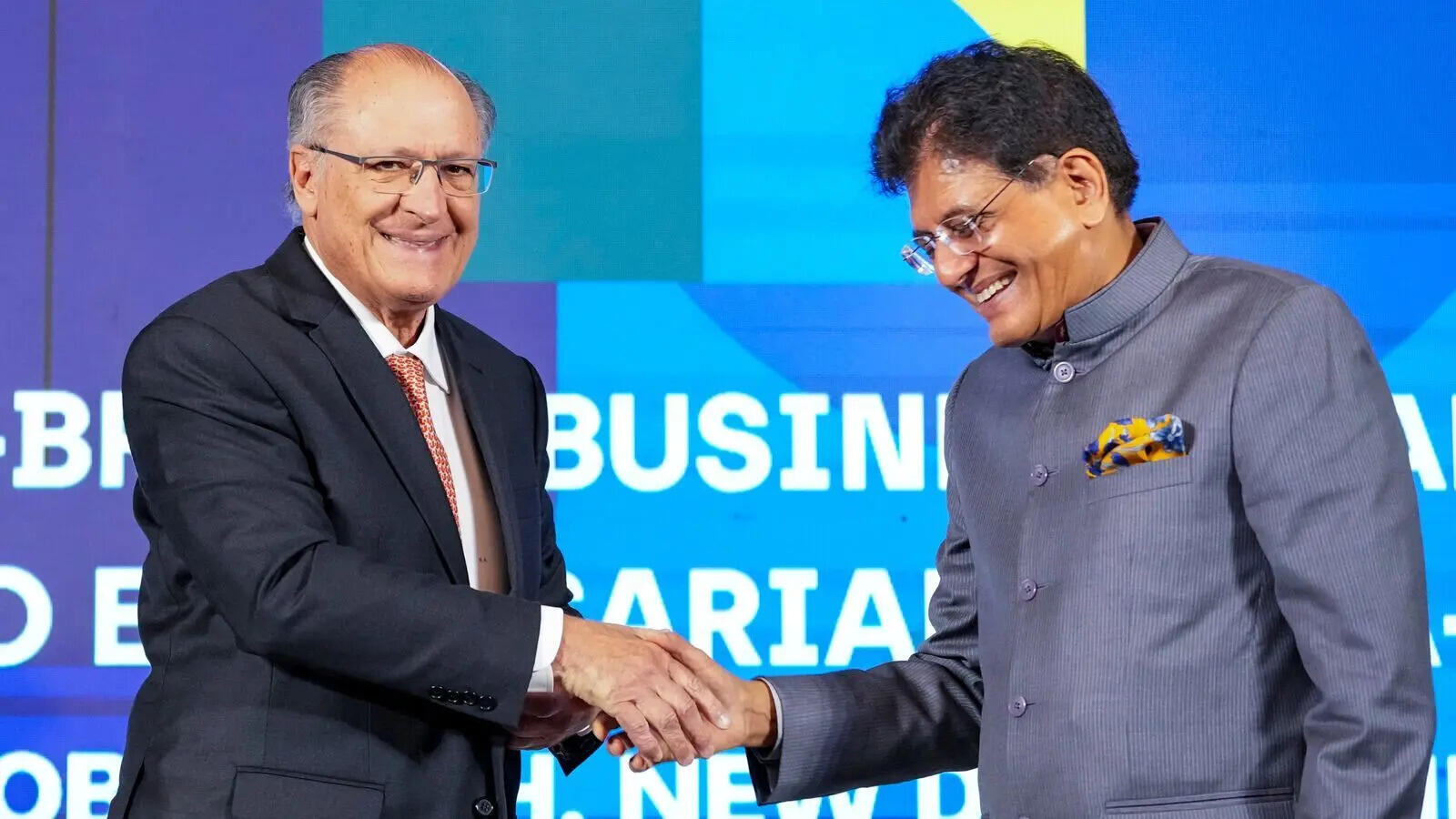
India and Brazil on Thursday agreed to deepen their economic engagement by expanding the scope of their Preferential Trade Agreement (PTA) under the Mercosur framework. As a part of this effort, the two countries have set a new bilateral trade target of $20 billion by 2030, up from $12 billion in 2024.
At the India-Brazil Business Dialogue in New Delhi, Brazil’s Vice President and Minister for Development, Industry, Trade & Services, Geraldo Alckmin, said the two nations were “complementary, not competitive” during the event jointly organised by FICCI, ApexBrasil, and CNI. “This year, India’s exports to Brazil grew over 30 per cent, and Brazil’s exports are also growing. We will exceed the foreign trade target of $20 billion by 2030,” he said.
Alckmin said both nations are working to expand cooperation through investment facilitation and double taxation avoidance, while including non-tariff and broader economic issues in the reworked trade pact. “We want to broaden the Preferential Trade Agreement and strengthen long-term cooperation in civil and defence areas,” he added.
Commerce and Industry Minister Piyush Goyal said the two countries share a long-standing and trusted partnership that has continued to strengthen across trade and investment. Brazil is India’s largest trading partner in South America. He highlighted the potential to expand cooperation in areas such as energy, agriculture, technology, and manufacturing.
“India and Brazil enjoy a warm and deep relationship built on shared values and complementary strengths. The dialogue today is another step toward taking this partnership to the next level,” Goyal said.
He added that both sides are working to upgrade the existing trade framework to cover new areas of mutual interest. He said that India’s broader engagement with the Mercosur bloc aims to ensure smoother market access and greater private sector participation.
Goyal also pointed out that the government remains focused on strengthening the overall business environment. “We have done free trade agreements with many developed countries in the last three years. It clearly shows that India is the favoured and preferred destination for both investment and bilateral trade,” he said.
Digital partnership and investment opportunities
Alckmin announced that Brazil is ready to launch a digital partnership with India focusing on artificial intelligence (AI), high-performance computing, and technology start-ups.
“This digital partnership will be a driving force for the new green and digital economy, creating more jobs and technological sovereignty. Brazil is also working on implementing e-visa facilities to ease business and travel,” he said.
He added that Brazil has welcomed Indian investment in various sectors such as automotive, information technology (IT), renewables, clean energy, healthcare, aerospace, agriculture, semiconductors, and digital innovation.
Notably, this development comes as India continues to pursue free trade agreements (FTAs) with several advanced economies. Goyal said India is in active talks for new trade pacts with the US, the European Union (EU), Chile, Peru, New Zealand, and Oman, in addition to agreements already signed with other nations.
The meeting coincided with World Food Day, with Goyal highlighting the shared agricultural strengths of both nations as leading food producers contributing to global food security. The minister expressed optimism that the dialogue would lead to greater collaboration in agri-business and food processing between the two nations.
Harsha Vardhan Agarwal, President of FICCI, in his address, described India and Brazil as “natural partners” in reshaping global governance, citing common positions in IBSA, BRICS, and the G20 on issues such as food security, energy transition, and climate action.
As part of the meet, a formal India-Brazil joint declaration was also exchanged. It stated that the expansion must be “substantial”, covering both tariff and non-tariff measures, with strong participation from the private sector. Both sides acknowledged that meeting the $20 billion target will require structural changes beyond tariff adjustments, given the scale and diversity of sectors involved—including IT, agriculture, defence and clean energy. Meanwhile, Frederico Lamego of CNI announced the revival of a dedicated India-Brazil Business Council to create an “actionable agenda” for industry.

